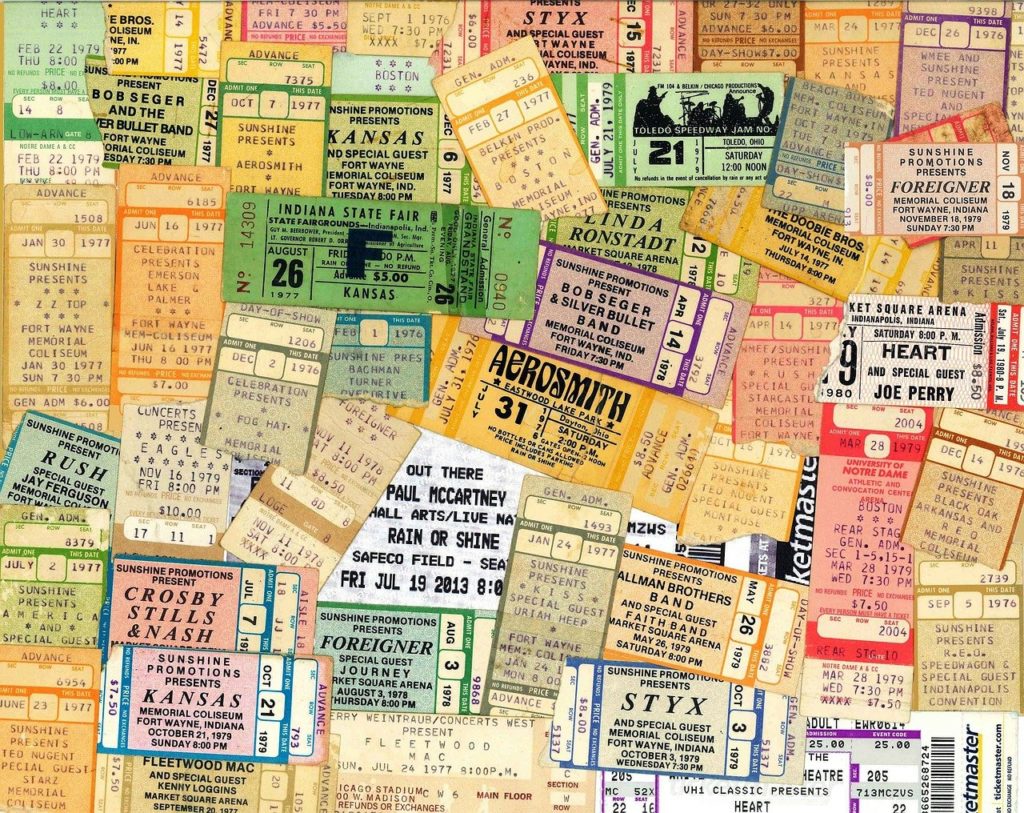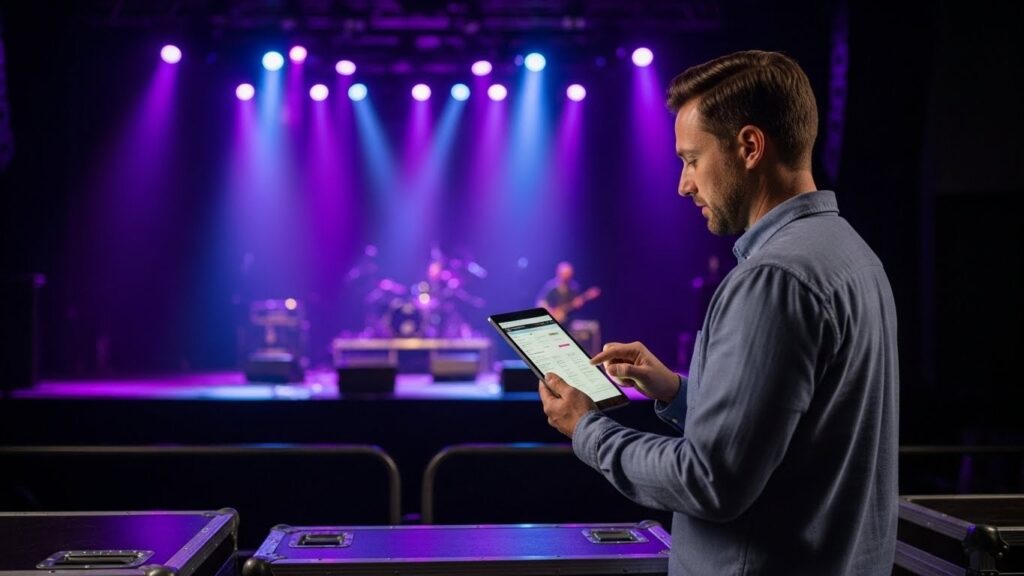
Ticketing Platforms: How Venues Can Boost Ticket Sales
Ticketing Platforms as a Way to Make More Money?
Ask any venue owner or manager what their number one goal is and you’ll likely hear something along the lines of “sell as many tickets as possible.” Of course, a lot goes into whether that will actually happen. For instance, a venue has to book shows people want to see. And in order to make a profit, they have to not only sell as many tickets as possible through a ticketing platform but sell them at a cost that provides enough margin to cover all of their costs and still have some left over.
If you own or manage a venue, you understand there is a delicate balance between giving your customers what they want and making money. If you charge too much per ticket, you risk losing patrons, which can lead to acts not wanting to book with your venue. This becomes a cycle of revenue degeneration, making it harder and harder to get good shows and a steady flow of customers.
On the other hand, if you charge too little per ticket, you may pack the room, but you risk not having enough income to cover all of your costs and go home with money in your pocket. This, too, can become a cycle – a cycle of working your ass off to fill your calendar with little to show for it at the end of the month.
Either situation is exhausting, forcing venues to continually hedge their bets with each show as they try to determine the sweet spot for ticket sales. Is there a better way to make money? You may be surprised that your ticketing platform could offer some help.
Thinking Creatively
There are many ways a venue can turn a profit but have you ever considered how integrating with a ticketing platform can contribute to expanding your customer base and increasing revenue? Let’s look at the facts.
Related: 3 Benefits of Integrating Event Management Software with Event Ticketing Software
Bounce rate. Anyone with a website needs to be familiar with this term. Bounce rate is a measure of how many people visit one of your webpages and leave without taking any action or progressing to your other web pages. They may check out your homepage, for instance, and then return to the Google search results. They may read one of your blogs but don’t read any further and navigate away from your page.
As much as you want your guests to stay on your site and take some sort of action, whether it be to contact your business, fill out a form, sign up for a newsletter, or read a blog, visitors bounce. And they bounce alot. RocketFuel says that most websites experience bounce rates anywhere from 26 percent to 70 percent, with an average of 49 percent.
Deciphering the meaning of bounce rate percentages can be challenging because not all low bounce rates are good and not all high bounce rates are bad. It really depends on the intent of your website and how well it is built. What matters most is that you keep your visitors as long as it takes to get value out of them.
Here’s what we mean in terms of a venue. If your venue website advertises upcoming concerts and offers visitors a way to purchase tickets online, you’re only half-way there. You want them to take the next action of actually purchasing those tickets from your site. You don’t want them having to bounce off of your site onto your ticketing platform site that is on your ticketing partner’s website. Any time your customer leaves your site, there is a risk they won’t come back or that they won’t take the action you wanted them to take. In this case, they may bounce to your off-site ticketing platform and decide not to purchase or think it’s taking too much time and give up.
You can think of this as a car dealership. Any car salesman knows that the second a potential customer walks off of the lot, the sale is likely gone. They do everything they can to make sure a visitor leaves with a car because they know if they don’t, that customer will buy one from the competition. While you aren’t selling cars, you still have to worry about customers who visit your site and leave without a ticket. The odds are they will either find another concert to attend or decide not to attend your concert.
When your website visitors have to navigate off of your site to purchase tickets to your live events, you are introducing risk. Risk of losing the sale and, therefore, the revenue. To keep them on your page and motivate them to purchase right then and there, you need to integrate your ticketing platform.
Providing a Seamless Customer Experience
Concert goers have options when it comes to purchasing event tickets. They can go directly to the ticketing company, like etix, or they can purchase it from the venue. For anyone who wants to know more about the concert and/or the venue, they may take the time to go to your website. If you have fans, you may get repeat visitors who regularly check out your lineup. Either way, you want them to be able to get the information they need and make their purchase without any friction.
Your goal is to make the ticketing purchase as hassle-free as possible. When they find the concert they want, they need to be able to click on the purchase button, pay, and have their tickets sent. In order to provide this functionality, you need your website to easily integrate with your partners’ ticketing platforms. Your customer doesn’t see what’s happening in the background; all they see is they only had to go to one website to get what they wanted. But providing a seamless user experience through ticketing platform integration is only one benefit.
With some solutions, such as Prism’s live music management software, Integrating with your ticketing platform also means you can see your sales in real-time and how they are impacting your financials. Instead of waiting for your ticketing partner to send you a weekly-generated sales report, you can go into your online dashboard at any time to get real-time sales updates. With every ticket sale, you see how much closer you are to breaking even or turning a profit.
Real-time transparency like this has its benefits beyond simply knowing where you stand for the sake of tracking sales. This kind of insight helps you make smarter decisions faster about how to spend your money. For instance, if you see your ticket sales are stagnant weeks before the concert, you can make proactive decisions on ways to boost or shift marketing efforts, such as offering group promotions, early-bird specials, or discounted merch; bumping up your social media game with more content; getting sponsors and/or radio stations to promote your event, or brainstorming with the talent’s agents for creative marketing ideas.
The point is, when you have the foreknowledge of your ticket sales performance, you have time to act – before it’s too late to do anything about it and just chalk the show up as a loss.
Related: Not Using Music Business Software? You’re Losing Money.
On the other hand, you may see that your ticket sales are going through the roof and you can safely predict your show will sell out. When you know this well enough in advance, you have more time to find ways to exploit the ticket demand. Maybe you can work with the talent or their agent to book them another show that night, a second night, or the following weekend. You may also be able to leverage the show’s popularity to bring in new acts to open for them, exposing up and coming talent to a bigger audience and winning their loyalty.
Ticketing platforms are more than just how you sell your tickets. They provide another means of building a fan base and fan loyalty, improving marketing efforts, and boosting revenue.

Matt Ford is the founder and CEO of Prism.fm, an Austin-based software company revolutionizing live music event management. With a background in entrepreneurship and a degree from the University of Wisconsin-Madison School of Business, Ford combined his self-taught coding skills with firsthand experience as a concert promoter to address the inefficiencies he observed in the industry. In 2018, he launched Prism.fm, an all-in-one platform designed to streamline operations for venues, promoters, and agencies by replacing cumbersome spreadsheets with integrated tools for booking, financial tracking, and contract management. Under his leadership, Prism.fm has grown significantly, achieving $3 million in annual recurring revenue post-COVID and securing over $15 million in funding . Ford’s commitment to building user-centric solutions has positioned Prism.fm as a trusted partner for over 1,500 venues and promoters worldwide.



